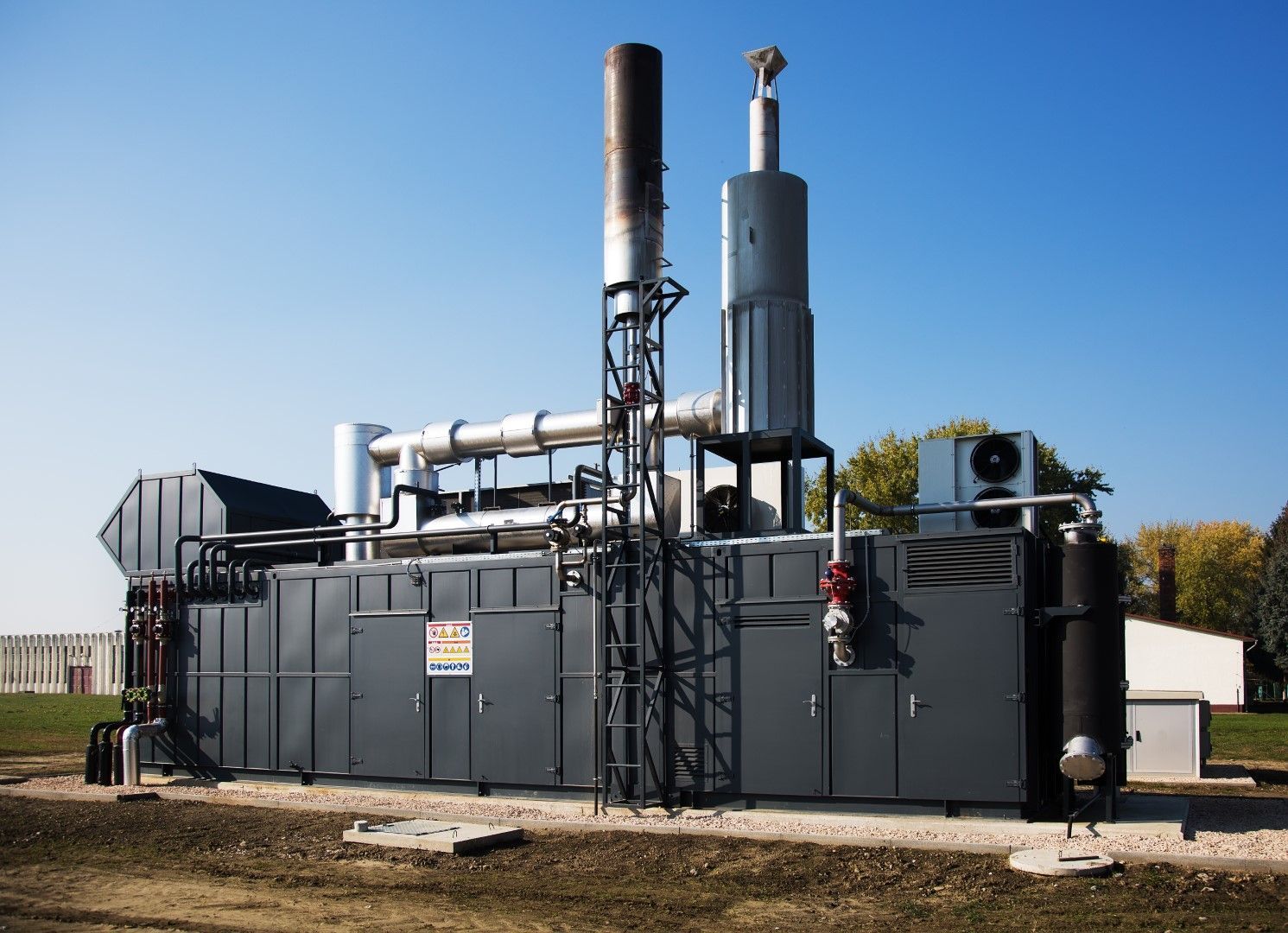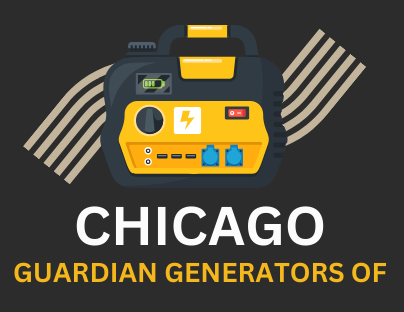Residential Generators in Chicago IL
A residential generator is a device designed to provide backup power to your home when the main power source fails. These generators ensure that essential appliances and systems, such as refrigerators, heating and cooling systems, and lights, remain operational during power outages. By converting fuel—such as natural gas, propane, or diesel—into electricity, residential generators help maintain normalcy and comfort when the power goes out.
Why Are They Important?
Power outages can happen for various reasons, including severe weather, utility failures, or accidents. When the power goes out, a residential generator ensures that your home remains functional. This is especially important in Chicago, where winter storms and other weather conditions can frequently disrupt power supply. Generators keep essential systems running, protect your home from damage, and ensure your family’s comfort and safety. They can also be crucial for those who rely on medical equipment that requires continuous power.
Types of Residential Generators
Residential generators come in several types, each suited to different needs:
- Portable Generators: These are smaller units that can be moved and used for short-term power needs. They are typically powered by gasoline and are suitable for temporary power during outages.
- Standby Generators: Installed permanently outside your home, these generators automatically turn on during a power outage. They are usually powered by natural gas or propane and can provide power for the entire house or selected circuits.
- Inverter Generators: Known for their quieter operation and fuel efficiency, inverter generators produce clean power and are ideal for sensitive electronics. They are often used for recreational purposes but can also serve as backup power sources.
- Dual-Fuel Generators: These versatile generators can run on either gasoline or propane, providing flexibility depending on fuel availability and preferences.
Installation Process
Installing a residential generator involves several key steps:
- Assessment: A professional will assess your home’s power needs and determine the appropriate generator size and type. This includes evaluating the electrical system and identifying key circuits that need backup power.
- Site Preparation: The installation site for the generator must be prepared, ensuring proper placement away from windows and ventilation systems. The site should also be accessible for maintenance and fuel refilling.
- Electrical Connection: A licensed electrician will connect the generator to your home’s electrical system, including installing a transfer switch that allows seamless switching between grid power and generator power.
- Testing: Once installed, the generator is thoroughly tested to ensure it operates correctly and efficiently. The testing process includes running the generator to simulate a power outage and verifying all connections and settings.

Routine Maintenance
To ensure your generator remains reliable, regular maintenance is crucial. This includes:
- Regular Inspections: Check the generator periodically for any signs of wear or malfunction. Inspect the fuel levels, oil, and air filters.
- Fuel Management: Keep the generator’s fuel supply in good condition and ensure it’s stored properly. If you use gasoline, be aware of its shelf life and replace it as needed.
- Battery Maintenance: Generators with electric start systems have batteries that should be checked and maintained. Replace the battery if it shows signs of weakness.
- Scheduled Service: Arrange for professional servicing according to the manufacturer’s recommendations. This typically includes oil changes, filter replacements, and system checks.
Safety Considerations
Safety is paramount when using and maintaining residential generators:
- Proper Ventilation: Ensure the generator is installed in a well-ventilated area to prevent the buildup of harmful exhaust gases.
- Avoid Carbon Monoxide: Never use a generator indoors or in enclosed spaces. Always place it outside, away from windows and doors, to avoid carbon monoxide poisoning.
- Safe Fuel Handling: Store fuel in appropriate containers and keep it away from heat sources and open flames.
- Electrical Safety: Follow all safety instructions for electrical connections and avoid overloading the generator by only powering essential appliances.
Cost and Investment
The cost of a residential generator varies based on its type, size, and features. Portable generators are generally more affordable, while standby generators require a larger investment due to installation and their ability to power your entire home. In addition to the initial cost, consider ongoing maintenance and fuel expenses. Investing in a high-quality generator can provide long-term benefits and peace of mind during power outages.
If you’re considering a
residential generator in Chicago, IL, we’re here to help. Our team of experts can guide you through the selection process, ensure professional installation, and provide ongoing support and maintenance. Don’t wait for the next power outage—contact us today to learn more about how a residential generator can protect your home and ensure uninterrupted power. Reach out to us for a consultation or to schedule your installation.
Key Features to Consider When Choosing the Right Residential Generator

Choosing the right residential generator is a crucial decision for homeowners who want to ensure a reliable power supply during outages. With various models and features available, making the right choice can seem overwhelming. This guide will help you understand the essential features to consider, making your decision easier and ensuring that your home remains powered and comfortable during unexpected disruptions. When selecting a residential generator, several key features should guide your decision:
Power Output
The generator’s power output is one of the most critical factors. It determines how many and which appliances you can run simultaneously. Start by calculating your household’s power needs, considering essential appliances such as refrigerators, heating systems, and medical equipment. Generators are rated in watts, so ensure the unit you choose can handle your total power requirement. It's often wise to select a generator with a bit more capacity than your calculated needs to account for unexpected demands.
Fuel Type
Generators can operate on various fuel types, including gasoline, diesel, propane, and natural gas. Each has its pros and cons. Gasoline is readily available but may require frequent refueling. Diesel is efficient and long-lasting but can be noisy and produce fumes. Propane and natural gas are clean-burning and convenient if you already have a supply, but they may require installation of a tank or connection.
Runtime and Tank Capacity
The runtime of a generator depends on its fuel tank capacity and consumption rate. A generator with a larger fuel tank will run longer between refuels, which is important during extended outages. Check the generator's runtime at half-load and full-load to ensure it meets your needs. Longer runtimes are especially beneficial if you live in an area prone to prolonged power outages.
Automatic Start and Transfer Switch
An automatic start feature ensures that your generator kicks in automatically when the power goes out, providing seamless transition without any action on your part. A transfer switch is another essential component that safely switches the power source from the grid to the generator, protecting your home’s electrical system and avoiding potential backfeed issues. Ensure that both features are included or available for the generator you choose.
Noise Level
Generators can be noisy, and the noise level is an important consideration, especially if you have close neighbors or want to avoid disturbing your household. Check the generator’s decibel rating to compare models. Some generators are designed with noise-reducing features or enclosures that can help minimize sound.
Portability vs. Stationary
Depending on your needs, you may choose between portable and stationary generators. Portable generators offer flexibility and can be moved to different locations as needed. They are ideal for occasional use or if you have varying power needs. Stationary generators are permanently installed and connected to your home’s electrical system. They are a good choice for comprehensive coverage and convenience but usually come at a higher cost.
Ease of Maintenance
Regular maintenance is essential to keep your generator running efficiently. Look for models with easy access to maintenance parts and check if they offer features like self-diagnostic systems. Some generators also come with maintenance alerts or schedules to help you keep track of servicing needs.
Brand Reputation and Warranty
Choose a generator from a reputable brand known for reliability and customer service. A strong warranty can provide peace of mind and protection against defects or issues. Review the warranty terms carefully, including coverage for parts and labor, to ensure you get the best value for your investment.
Selecting the right residential generator requires careful consideration of various factors. By understanding the key features and how they align with your needs, you can make an informed decision that ensures your home remains powered during outages. If you need help choosing the perfect generator for your home, our team is here to assist you. Contact us today for personalized advice, expert recommendations, and top-quality products. Ensure your home’s power needs are met with confidence and reliability.
When Should You Think About Installing a Residential Generator?
Choosing the right residential generator is a crucial decision for homeowners who want to ensure a reliable power supply during outages. With various models and features available, making the right choice can seem overwhelming. This guide will help you understand the essential features to consider, making your decision easier and ensuring that your home remains powered and comfortable during unexpected disruptions. When selecting a residential generator, several key features should guide your decision:
Frequent Power Outages
If you live in an area prone to frequent power outages, a residential generator becomes a valuable asset. Areas affected by severe weather, such as storms or hurricanes, often experience intermittent power interruptions. A generator ensures that you have a backup power source, keeping essential appliances running and maintaining comfort and security.
Medical Needs
For households with medical equipment that requires continuous power, such as oxygen concentrators or electric wheelchairs, a generator is crucial. The uninterrupted power supply ensures that these devices operate smoothly, which is essential for the health and well-being of individuals who depend on them.
Home Business Operations
If you run a business from home, a power outage can disrupt operations and cause significant losses. A generator can keep your home office running, allowing you to continue working without interruptions. It can also protect your electronic devices and data from potential damage due to sudden power failures.
Seasonal Concerns
During peak seasons like winter or summer, when extreme weather conditions can lead to power outages, having a generator is particularly useful. Cold weather can freeze pipes and disrupt heating systems, while heat waves can affect air conditioning. A generator ensures that your home remains livable during these times.
Enhanced Safety
Power outages can compromise home security systems, leaving your property vulnerable. A generator keeps security lights, cameras, and alarms functioning, ensuring that your home remains protected even during a power outage.
Remote Locations
Homes situated in remote or rural areas are often more susceptible to power outages due to their distance from the main power grid. In such cases, a residential generator provides a reliable power source that can keep your home operational even when the grid is down.
If you’re considering a residential generator to enhance your home’s reliability and safety, we’re here to help. Our team of experts can guide you through the selection process, ensuring you choose the right generator for your needs. Contact us today to discuss your options and get a free consultation. Ensuring your home is equipped with a reliable power source will give you peace of mind during any power outage.
